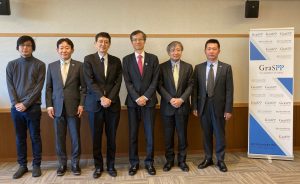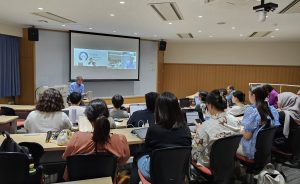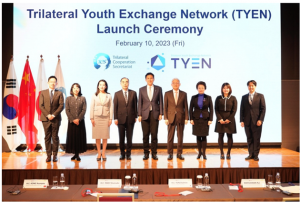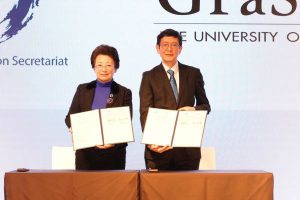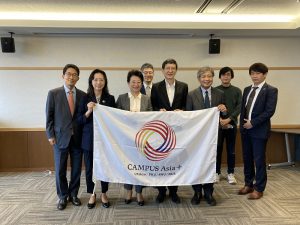GraSPP Research Seminar
,
Summary

On July 17, 2024, in Tokyo, GraSPP and the Trilateral Cooperation Secretariat (TCS) jointly hosted a seminar†, “Exploring Regional Economic Integration and the Future of Trilateral Cooperation.” Renowned experts from China, Japan, Korea (collectively, the “CJK”), Indonesia, and Thailand participated as speakers and moderators. Over 30 people attended the seminar onsite, including government officials, diplomats, professors, researchers, and students. Following the seminar, Dean Daiji Kawaguchi and TCS’s Secretary-General Hee-sup Lee bilaterally discussed partnership opportunities between GraSPP and TCS.
† Organized concurrently as GraSPP Research Seminar (Economic Policy, Finance & Development Series) and TCS’s Trilateral Economic Cooperation Seminar 2024
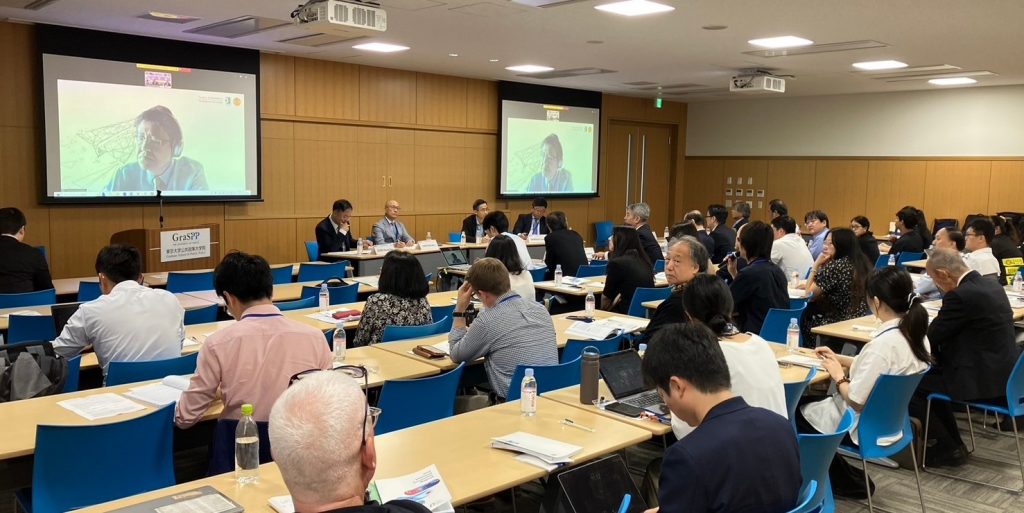
Seminar
Secretary-General Lee opened the seminar by highlighting the reaffirmation at the Ninth Trilateral Summit held on May 27, 2024, of CJK’s commitment to implementing the “Trilateral Cooperation Vision for the Next Decade.” The Vision outlines the three countries’ long-term goal of achieving regional economic integration. Moreover, he expressed the hope that regional economic frameworks such as the Regional Comprehensive Economic Partnership (RCEP) and the Comprehensive and Progressive Agreement for Trans-Pacific Partnership (CPTPP) would accelerate the negotiation process for the long-awaited CJK Trilateral Free Trade Agreement (FTA).
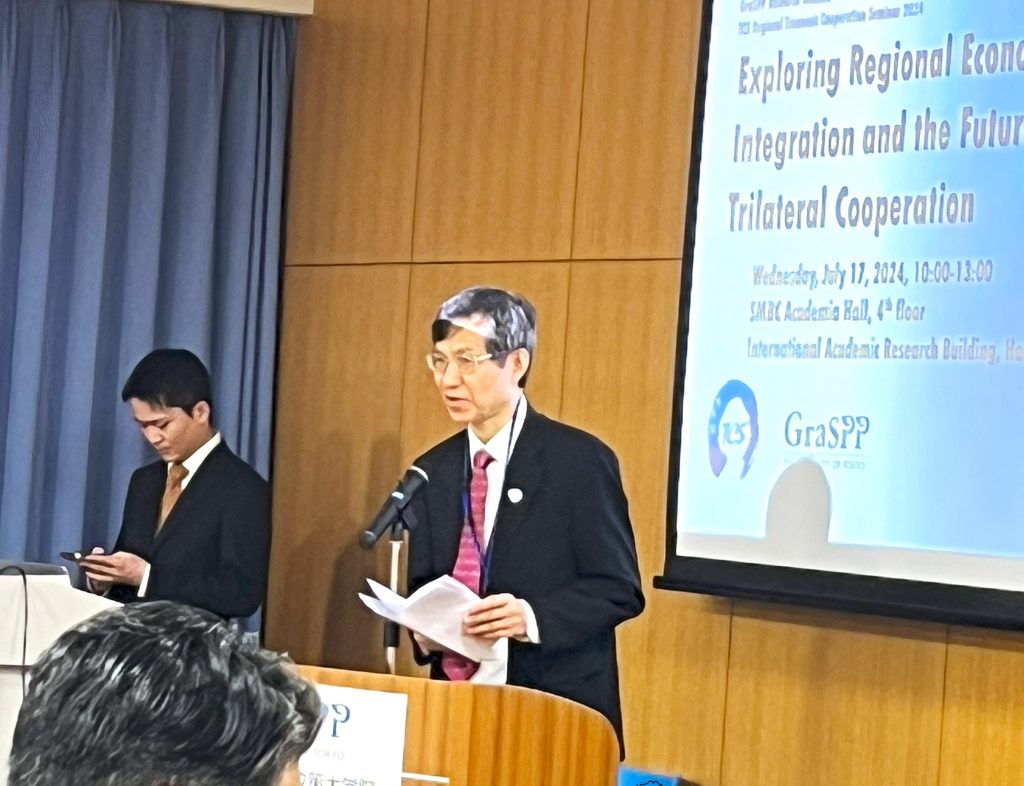
Dean Kawaguchi welcomed the participants and appreciated the valuable opportunity to learn the findings and insights of the authors of TCS’s annual flagship publication, “Trilateral Economic Report 2024,” which comprehensively covered the economic performance and the outlook of regional economic cooperation. Dean Kawaguchi stated that, on the public policy front, given the increasing global protectionism and geopolitical tensions, it is crucial to enhance cooperation between China, Japan, and Korea. He added that we should explore regional economic integration with open trade by extending the trilateral cooperation to regional cooperation with ASEAN member states. He reaffirmed GraSPP’s commitment to promoting trilateral and regional cooperation by facilitating various academic and people-to-people exchanges among and beyond CJK in the spirit of the Memorandum of Understanding (MOU) signed with the Trilateral Cooperation Secretariat in February 2023.
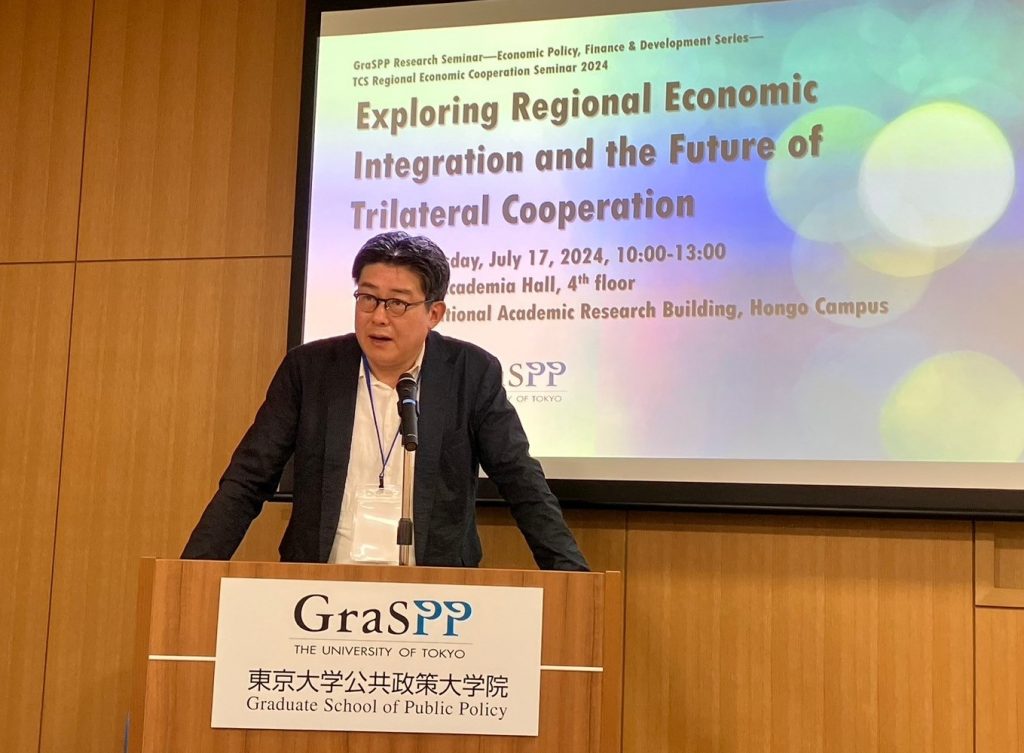
In the first session, “Economic and trade cooperation in East Asia,” moderated by Professor Yasuyuki Sawada from The University of Tokyo’s Graduate School of Economics, speakers shared their insights on economic performance in China, Japan, Korea, and ASEAN while emphasizing the implications of strengthening trilateral economic cooperation and integration. The speakers summarized their views as the authors of the respective chapters in the Trilateral Economic Report 2024.
Qing Liu, Deputy Dean and Professor, National Academy of Development and Strategy, Renmin University of China
“Trilateral Economic Report 2024—China part”
Masahiro Kawai, Professor Emeritus, The University of Tokyo
“Japan’s approach to trilateral economic cooperation and integration”
Hyung-Gon Jeong, Senior Research Fellow, Japan and East Asia Team, Korea Institute for International Economic Policy (KIEP)
“Economic and trade cooperation in East Asia”
Archanun Kohpaiboon, Associate Professor, Faculty of Economics, Thammasat University (online)
“ASEAN+3 performance and challenges”
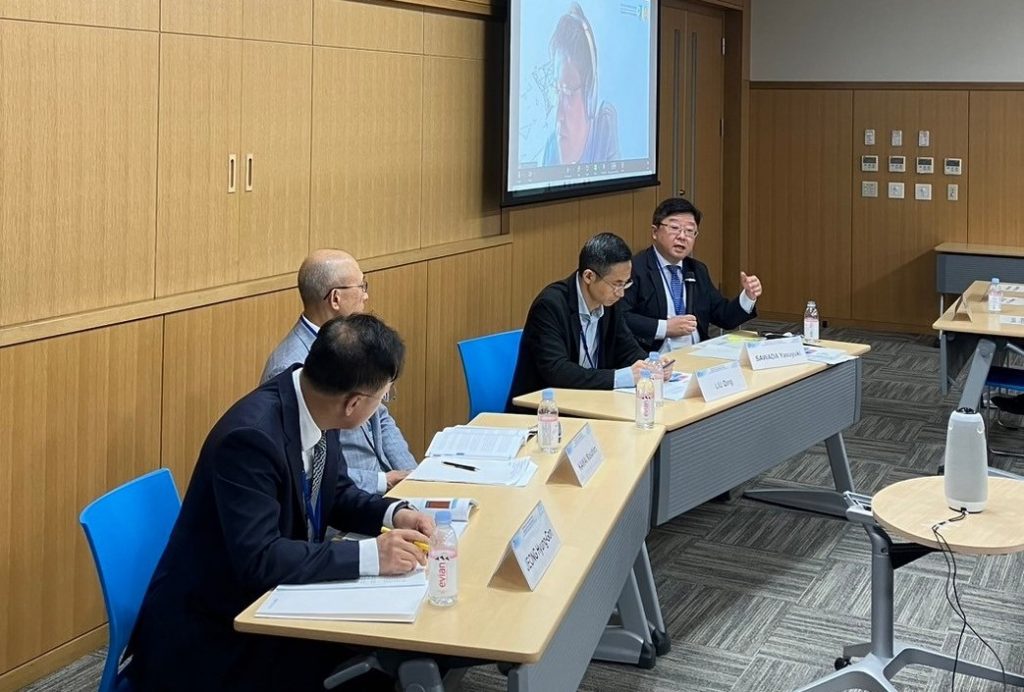
The second session, “Trilateral + ASEAN for regional economic integration,” moderated by Professor Toshiro Nishizawa from GraSPP, focused on RCEP and CPTPP and the potential of the CJK Trilateral FTA. The speakers, the authors of the respective chapters in the Trilateral Economic Report 2024, provided constructive suggestions and valuable insights on regional economic cooperation.
Jianping Zhang, Deputy Director, Academic Steering Committee, Chinese Academy of International Trade and Economic Cooperation
“Economic cooperation within CJK under RCEP”
Arata Kuno, Professor, Faculty of International Relations, Asia University
“Trilateral + ASEAN for regional economic integration—Japan’s perspectives”
Choong Yong Ahn, Professor Emeritus, Chung Ang University and former President of KIEP
“ROK’s connectivity with RCEP, CPTPP, and ASEAN: Policy recommendations for regional cooperation”
Dionisius Narjoko, Senior Economist, Economic Research Institute for ASEAN and East Asia (ERIA)
“Forwarding regional trade integration and cooperation: RCEP, CPTPP, ASEAN”

Bilateral talk
Following the seminar and networking lunch reception, Dean Kawaguchi and Secretary-General Lee met bilaterally to express their gratitude to each other for the successful co-hosting of the seminar.
Secretary-General Lee appreciated the University of Tokyo’s active participation in youth exchange projects, including the CAMPUS Asia Alumni Workshop, the Trilateral Youth Speech Contest, and the Trilateral Youth Summit. He also expressed his appreciation for sending students to TCS as interns and his hope to strengthen the partnership with GraSPP further.
Dean Kawaguchi said he was honored to cooperate with TCS and promote exchanges among Chinese, Japanese, and Korean students. He welcomed the progress made at the Ninth CJK Trilateral Summit in May, with an agreement to actively support the CAMPUS Asia program and significantly expand the number of students joining the program. Furthermore, he emphasized that student exchanges would serve as the foundation for relations between the countries, and GraSPP would continue to work hard with TCS going forward.
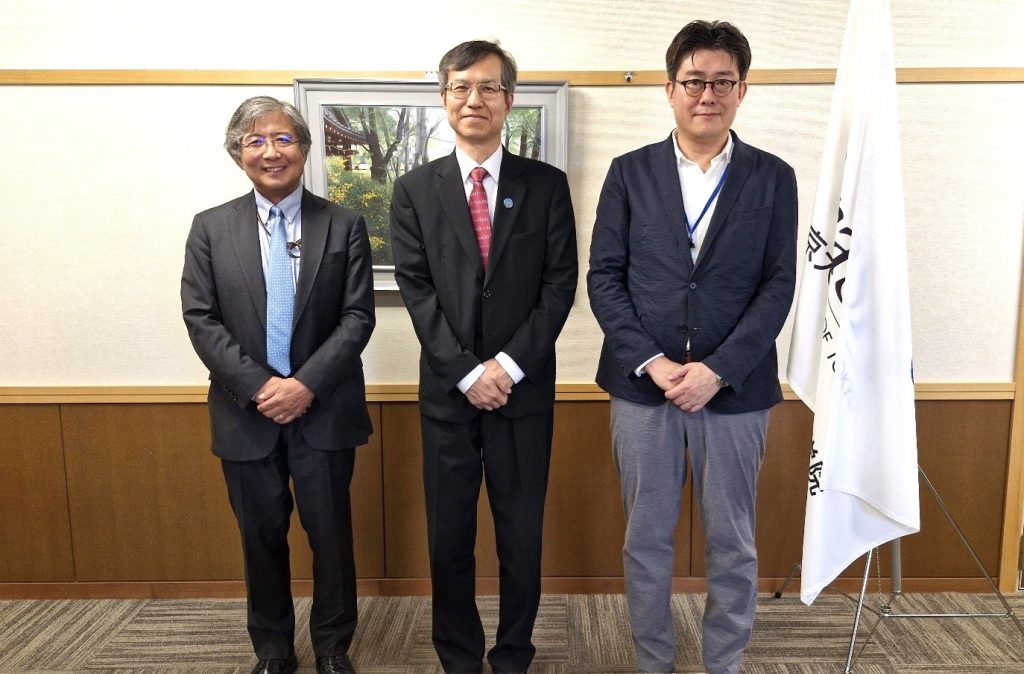
Background to the seminar
The trilateral cooperation process among China, Japan, and Korea began in 1999 and was further strengthened and institutionalized with the launch of the Trilateral Summit in 2008. Before the CJK cooperation process started, regional cooperation in Asia had been institutionalized and developed under the ASEAN+3 framework launched in 1997 during the Asian Financial Crisis. The latest Trilateral Summit, held on May 27, 2024, reaffirmed CJK’s commitment to implementing the Trilateral Cooperation Vision for the Next Decade adopted in 2019, which pointed out that the three countries’ long-term target is to achieve economic integration in the region as the “Trilateral + X Cooperation” to prosper together.
However, there have been obstacles to economic relations in East Asia; the CJK FTA negotiations have been at a deadlock since 2013. In the meantime, Japan led the negotiations for CPTPP, which was signed in March 2018 without China and Korea. On the other hand, RCEP, which entered into force in January 2022, represents the first-ever economic partnership agreement, including CJK. As stated in the Joint Declaration of the Ninth Trilateral Summit, it is expected to step up regional economic cooperation and help accelerate the long-awaited CJK FTA negotiation process.
Background to GraSPP-TCS partnership
GraSPP and TCS signed an MOU for the internship program on the occasion of CJK (China-Japan-Korea) Youth Day in Tokyo on February 10, 2023. An increasing number of students seek internship opportunities. The MOU emphasizes mutual efforts to strengthen cooperative relations through regular communication to provide students with internship opportunities and facilitate academic, cultural, and people-to-people exchange activities, such as youth exchange projects related to CJK cooperation.
Trilateral Cooperation Secretariat
The Trilateral Cooperation Secretariat (TCS) is an international organization established to promote lasting peace, common prosperity, and a shared culture among China, Japan, and Korea. The three governments signed and ratified an agreement to officially inaugurate TCS in Seoul in September 2011. Establishing TCS marked a significant milestone in institutionalizing trilateral cooperation among the three countries, which started in 1999.


